18 Things You Can’t Legally Keep In Your Yard Without A Permit (And Safer Alternatives)

Your yard might feel like your own little kingdom, a personal space where you can create whatever you want. But local laws and regulations often have the final say about what you can and cannot keep there. These rules exist to protect the neighborhood, the environment, and public safety.
Many popular yard additions—like sheds, fences, pools, or even certain plants—actually require proper permits before you install them. Ignoring these rules can lead to costly fines, forced removals, or delays in your project. It’s frustrating, but knowing what’s allowed can save you headaches down the road.
Understanding these restrictions ahead of time helps you avoid unexpected legal troubles while still creating the outdoor space you want. With a little research and planning, you can design a yard that’s beautiful, functional, and fully compliant with local regulations.
1. Backyard Chickens

Many urban and suburban areas restrict keeping chickens without proper permits. Local ordinances typically limit flock size, ban roosters entirely, and require coops to be a certain distance from property lines. Violating these rules can result in fines starting at $100 and potentially forced removal of your birds.
Before bringing home chicks, check with your local zoning department about specific requirements. Some areas offer simple permits for small flocks of 3-5 hens with minimal paperwork and reasonable fees under $50.
For a legal alternative, consider joining a community garden with a shared chicken coop or participating in an egg co-op where members share responsibilities and benefits without keeping birds on their own property.
2. Large Storage Sheds
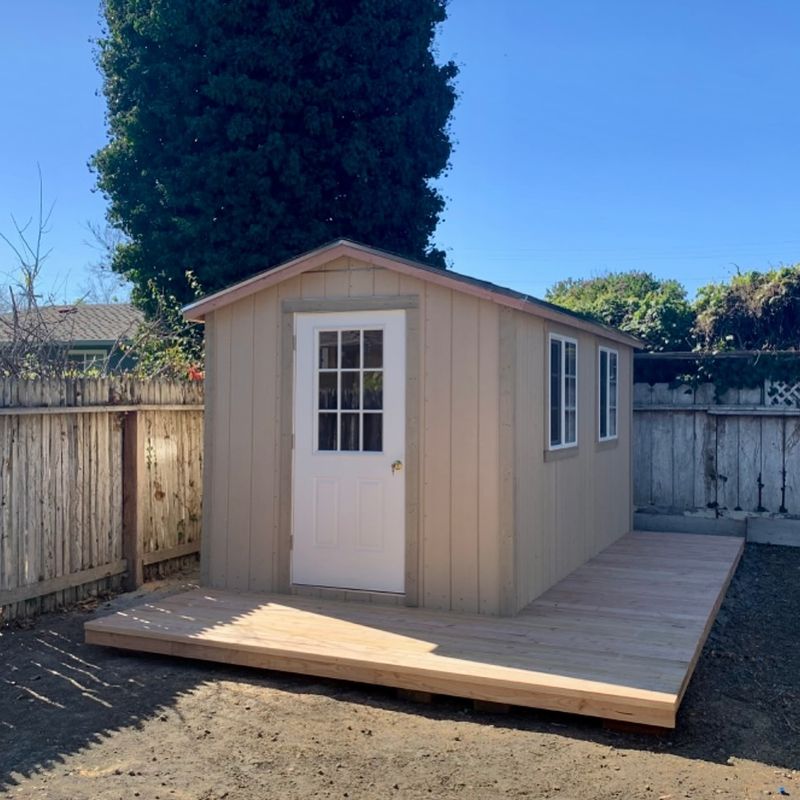
Storage sheds exceeding certain dimensions (typically over 120 square feet) require building permits in most municipalities. The permit process ensures proper anchoring, safe electrical work if applicable, and appropriate setbacks from property lines and utility easements.
Skipping this permit can lead to forced removal, retroactive fees, and complications when selling your home. Insurance companies may also deny claims for damage involving unpermitted structures, leaving you financially vulnerable.
A safer alternative is installing multiple smaller storage solutions that fall under the permit threshold. Consider several decorative garden cabinets, vertical tool organizers, or bench storage units that collectively provide the space you need without crossing into permit territory.
3. Fire Pits And Outdoor Fireplaces
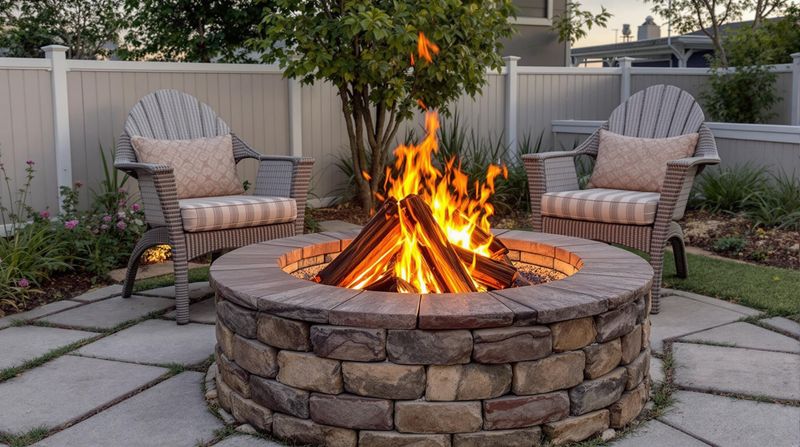
Permanent fire features require permits in most residential areas to ensure proper distance from structures, trees, and property lines. Fire marshals typically require specific construction materials, size limitations, and safety features like screens or covers.
Operating an unpermitted fire feature can result in immediate shutdown by authorities, especially during burn bans or air quality alerts. Homeowners insurance policies often exclude coverage for damage caused by unpermitted fire features, creating significant financial risk.
For a hassle-free alternative, portable propane fire tables offer the ambiance without permit requirements in most areas. These clean-burning options produce less smoke, can be moved as needed, and typically face fewer restrictions while still providing warmth and atmosphere for outdoor gatherings.
4. Beehives
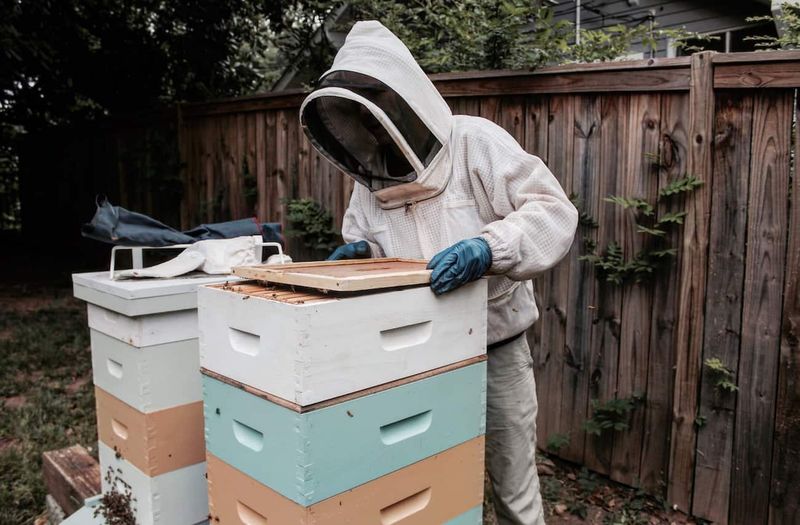
Urban beekeeping requires permits in many residential zones, with regulations covering hive quantity, placement, and management practices. Requirements often include minimum lot sizes, setbacks from property lines, and water source provisions to prevent bees from visiting neighbors’ pools or bird baths.
Unpermitted hives can trigger neighbor complaints, resulting in forced removal and potential fines. Some municipalities require beekeeping training or certification before issuing permits, ensuring proper colony management and swarm prevention.
If traditional beekeeping seems too complicated, consider installing solitary bee houses instead. These small structures support native pollinators like mason and leafcutter bees that rarely sting, don’t form colonies, and typically face fewer restrictions while still supporting garden pollination and environmental health.
5. Above-Ground Swimming Pools
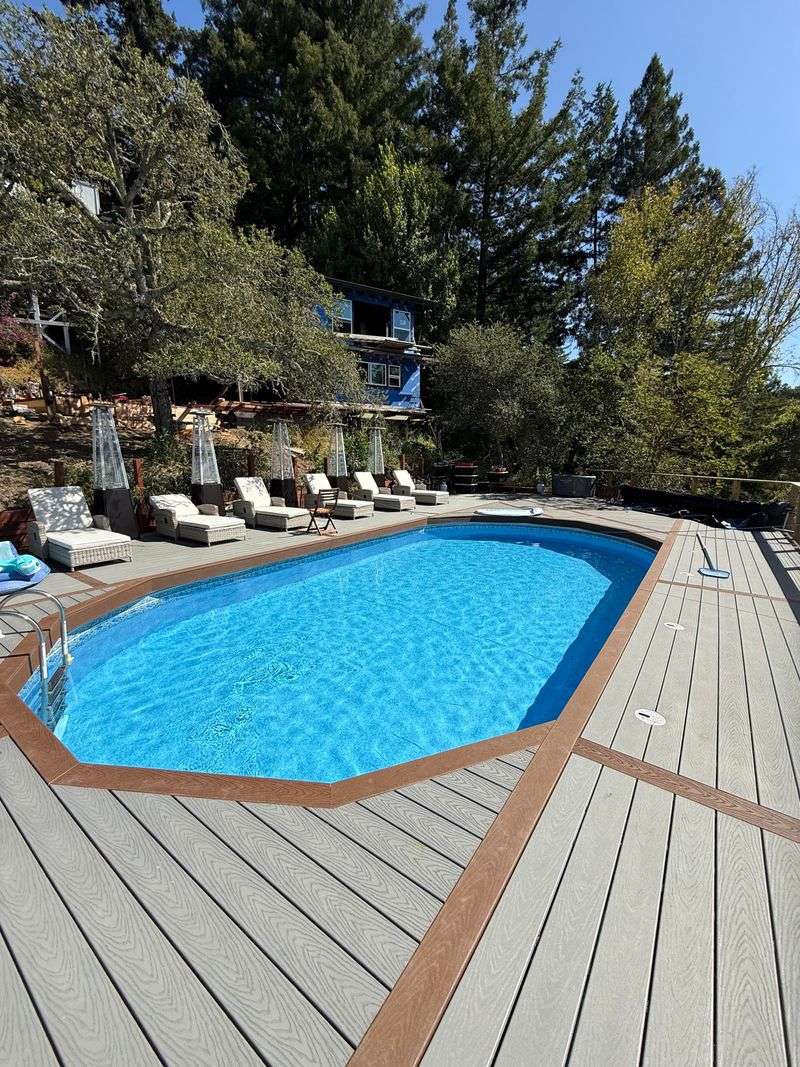
Most municipalities require permits for above-ground pools deeper than 24 inches, regardless of whether they’re seasonal or permanent. Regulations typically address safety barriers, proper electrical connections, and setbacks from property lines and utility easements.
Installing a pool without permits can lead to mandatory drainage and removal, plus retroactive permit fees that often cost double the original amount. The bigger concern is liability – unpermitted pools that lead to accidents may not be covered by homeowners insurance.
A safer alternative is installing a water feature like a shallow reflecting pond or a splash pad with proper drainage. These options provide cooling entertainment during hot months without triggering the same permit requirements while using less water and requiring less maintenance.
6. Rainwater Collection Systems
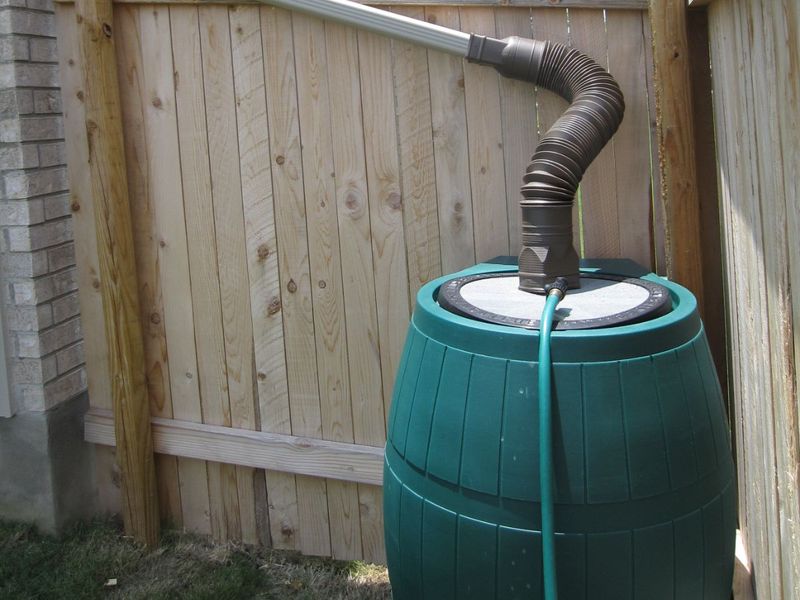
Large-scale rainwater harvesting systems often require permits to ensure proper overflow handling, mosquito prevention, and backflow protection. Some states have specific regulations about collection capacity, with systems over 500 gallons typically requiring engineering approval and permits.
Unpermitted systems can create drainage issues affecting neighboring properties, potentially leading to liability for water damage. Improper connections to household plumbing can also create health hazards if non-potable rainwater contaminates drinking water.
Start with simple rain barrels under downspouts as a permit-free alternative in most areas. These smaller systems (typically under 100 gallons) usually don’t require permits while still conserving water for garden use. Just be sure to use models with secure lids and mosquito screens for safety.
7. Recreational Vehicles And Boats
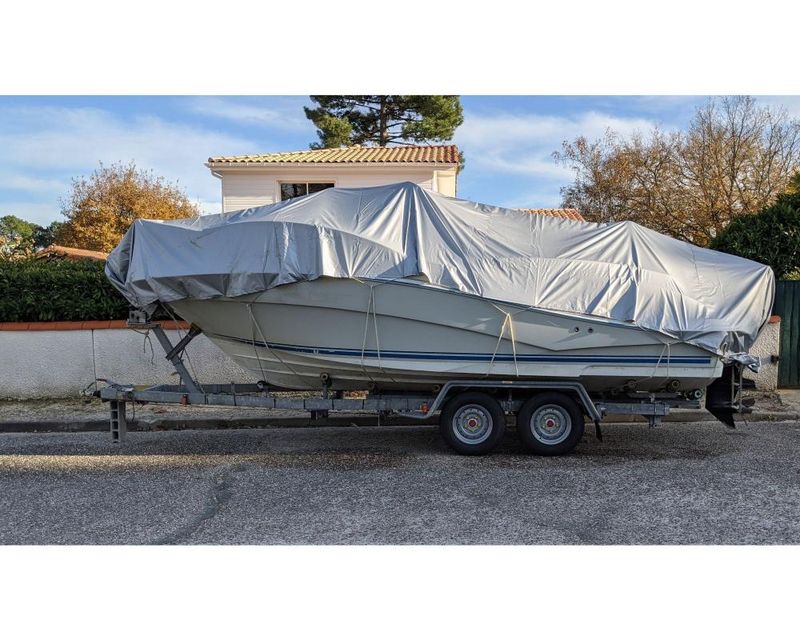
Long-term storage of RVs, boats, or campers in residential driveways or yards often requires permits or violates zoning codes entirely. Most municipalities limit storage duration, require vehicles to be registered and operational, and mandate specific setbacks from streets and property lines.
Violations can result in citations starting around $50 daily until the vehicle is moved. Some neighborhoods with HOAs have even stricter rules, with potential liens against your property for continued non-compliance.
I learned this lesson when storing my brother’s fishing boat last summer! Consider renting space at a dedicated storage facility instead. Though it costs money, it protects your vehicle from weather damage and vandalism while keeping you in good standing with neighbors and local authorities.
8. Livestock Animals
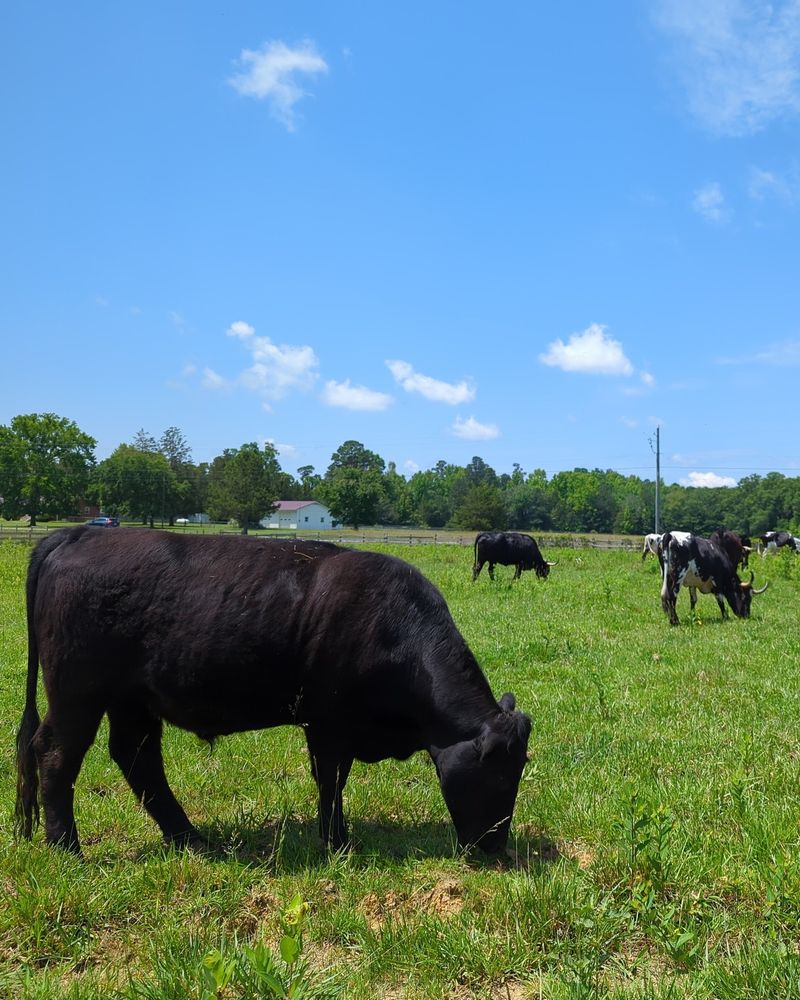
Keeping goats, pigs, sheep, or other livestock animals requires special permits in residential areas, even on larger lots. Regulations typically specify minimum acreage per animal, proper shelters, waste management plans, and setbacks from neighboring properties to minimize noise and odor impacts.
Unpermitted livestock can trigger animal control interventions, resulting in removal of the animals and fines that increase with each violation. Many municipalities also require veterinary inspection certificates and proper containment to prevent escape.
Consider joining a community agriculture program instead, where you can participate in caring for livestock without keeping them at home. These programs offer the educational and emotional benefits of animal husbandry while keeping the actual animals in properly zoned agricultural areas with appropriate facilities.
9. Tall Fences

Fences exceeding height limits (typically 6 feet in backyards and 3-4 feet in front yards) require permits in most residential areas. The permit process ensures proper structural support, appropriate materials, and verification that the fence doesn’t block visibility at corners or driveways.
Building an overheight fence without approval can result in forced removal or modification at your expense. Property surveys may also be required to confirm the fence is actually on your property, adding considerable cost if done retroactively after a complaint.
Instead of tall fencing, consider creating natural privacy with strategic landscaping. A combination of columnar trees, dense shrubs, and tall ornamental grasses can create effective visual screening without triggering permit requirements while adding beauty and habitat value to your yard.
10. Large Satellite Dishes

Satellite dishes exceeding one meter (39 inches) in diameter typically require permits to ensure proper mounting, structural stability, and compliance with local aesthetic regulations. Placement restrictions often apply, especially in historic districts or neighborhoods with architectural covenants.
Mounting large dishes without permits can result in removal orders and potential damage to your home during the installation or subsequent removal. Wind damage from improperly secured dishes can also create liability issues if neighboring property is damaged.
Modern streaming services and smaller satellite receivers offer excellent alternatives. Today’s compact dishes generally don’t require permits when attached to your home, while providing access to hundreds of channels. Streaming services eliminate external equipment altogether while offering comparable content options.
11. Extensive Hardscaping

Large patios, extensive retaining walls, and significant grading changes require permits in most areas. These regulations ensure proper drainage, structural stability, and compliance with lot coverage limits that maintain adequate permeable surfaces for stormwater management.
Unpermitted hardscaping can create serious drainage issues affecting neighboring properties, potentially making you liable for water damage. Retaining walls over certain heights (typically 3-4 feet) present collapse risks if not properly engineered, creating safety hazards and potential insurance complications.
Consider phased implementation of smaller hardscape elements that fall below permit thresholds. Multiple seating areas connected by permeable pathways often accomplish the same functional goals while maintaining better drainage and requiring less paperwork than a single massive patio.
12. Home Business Structures
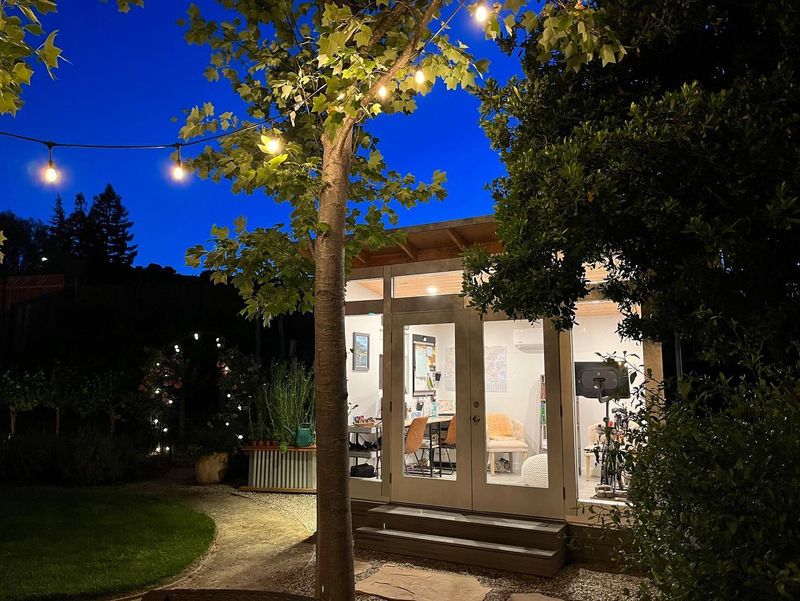
Converting sheds or garages into business spaces requires permits to ensure proper zoning compliance, safe electrical work, adequate ventilation, and accessibility features. Many areas have strict limitations on commercial activities, particularly those generating customer traffic or requiring special equipment.
Operating unpermitted business structures can result in zoning violations with daily fines, forced closure, and potential tax complications. Home insurance policies typically exclude coverage for business activities, leaving you vulnerable to liability claims.
A safer approach is utilizing space within your main residence for home-based work, which generally faces fewer restrictions. For creative work requiring separate space, consider portable options like prefabricated office pods that don’t require permanent foundations or extensive modifications to existing structures.
13. Large Temporary Structures
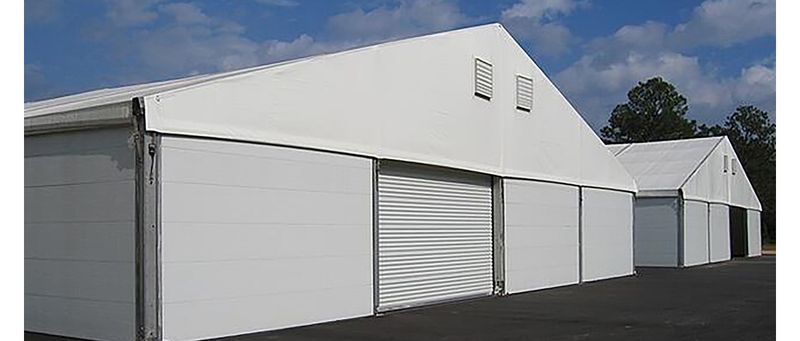
Party tents, temporary garages, and seasonal structures exceeding certain dimensions (typically 120-200 square feet) require permits in many jurisdictions. These permits ensure proper anchoring, fire safety measures, and appropriate setbacks from property lines and utilities.
Unpermitted temporary structures can create liability issues if they collapse or become airborne during storms. Many municipalities limit how long these structures can remain in place, with extensions requiring additional permits or being prohibited entirely.
For occasional needs, consider renting equipment instead of purchasing. Event rental companies handle permits for large tents, while vehicle covers and smaller canopies (under permit thresholds) can address seasonal storage needs without triggering permit requirements or long-term aesthetic concerns.
14. Extensive Lighting Systems
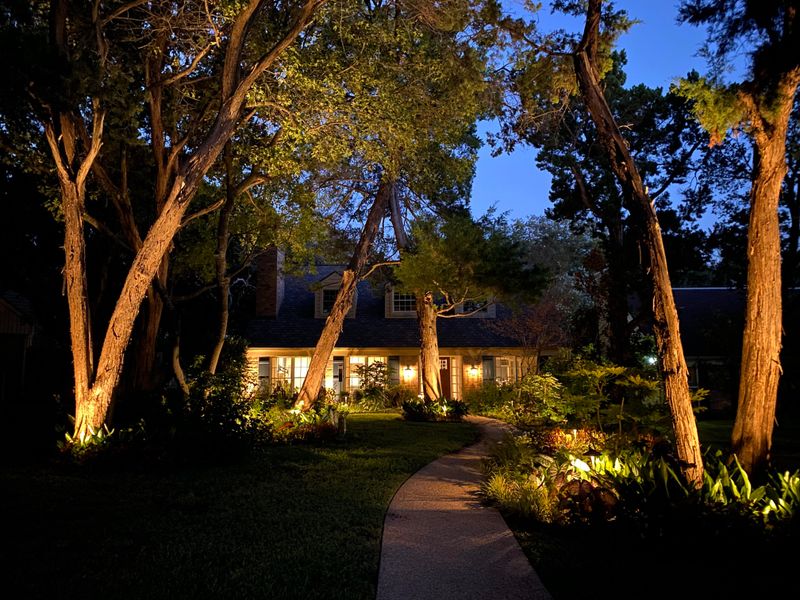
Large-scale outdoor lighting installations often require electrical permits and may face restrictions under dark sky ordinances. Permits ensure proper wiring, weather protection, and appropriate placement to prevent light trespass onto neighboring properties.
Unpermitted electrical work creates fire hazards and may void your homeowners insurance if problems arise. Excessive brightness or poorly aimed fixtures can also trigger nuisance complaints from neighbors affected by light pollution, potentially resulting in modification orders.
Solar-powered landscape lighting offers a simpler alternative, typically avoiding permit requirements while providing adequate illumination for pathways and accent lighting. These systems eliminate electrical hazards, reduce energy costs, and minimize light pollution with their typically softer glow and limited operation time.
15. Tree Removal
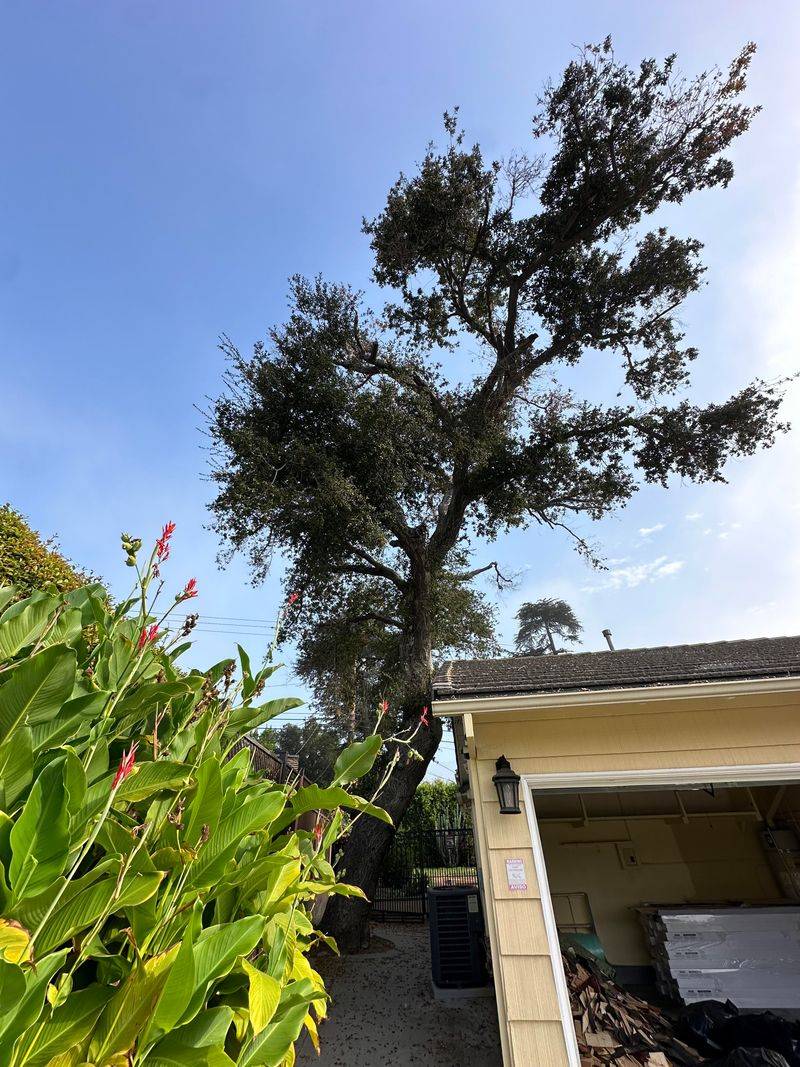
Removing large trees (typically over 6-12 inches in diameter) requires permits in many municipalities, especially for protected species or in designated conservation areas. These regulations protect urban canopy, wildlife habitat, and neighborhood character while preventing erosion issues.
Unpermitted tree removal can result in substantial fines, sometimes calculated per inch of trunk diameter, potentially reaching thousands of dollars. Some jurisdictions also require replacement plantings or contribution to tree funds to offset the environmental impact.
If a tree is causing concerns, consider pruning or cabling. Professionals can often address safety issues while preserving the tree. For problematic species, gradual replacement by planting preferred trees nearby and removing the original tree only after the new ones are established can be a better approach.
16. Graywater Systems
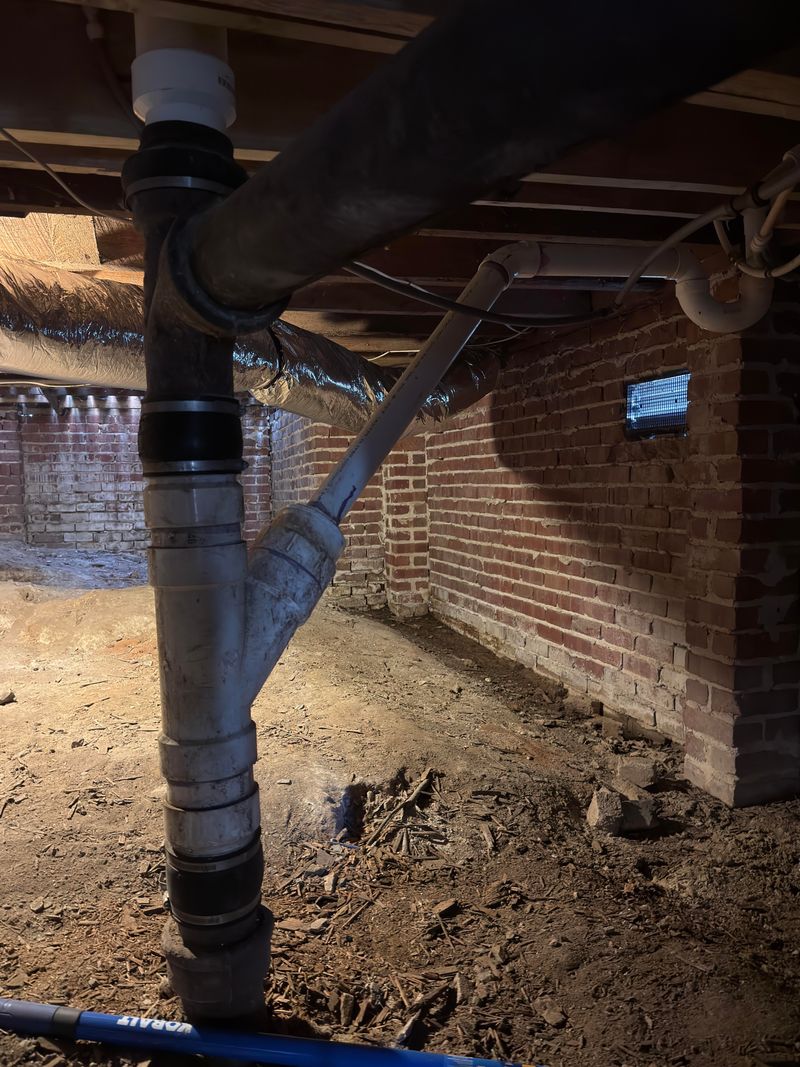
Graywater systems that reuse water from sinks, showers, and washing machines for irrigation require permits to ensure proper filtration, appropriate application methods, and prevention of cross-contamination. Health departments typically regulate these systems to prevent exposure to harmful bacteria.
Installing unpermitted graywater systems can create health hazards through improper handling of potentially contaminated water. Violations often result in immediate shutdown orders and potential contamination testing at the homeowner’s expense.
A simpler alternative is using washing machine diversion systems that temporarily connect to landscape areas during wash cycles. These simple setups often face fewer restrictions while still conserving water. Just be sure to use plant-friendly, biodegradable detergents and avoid water-sensitive plants.
17. Composting Toilets
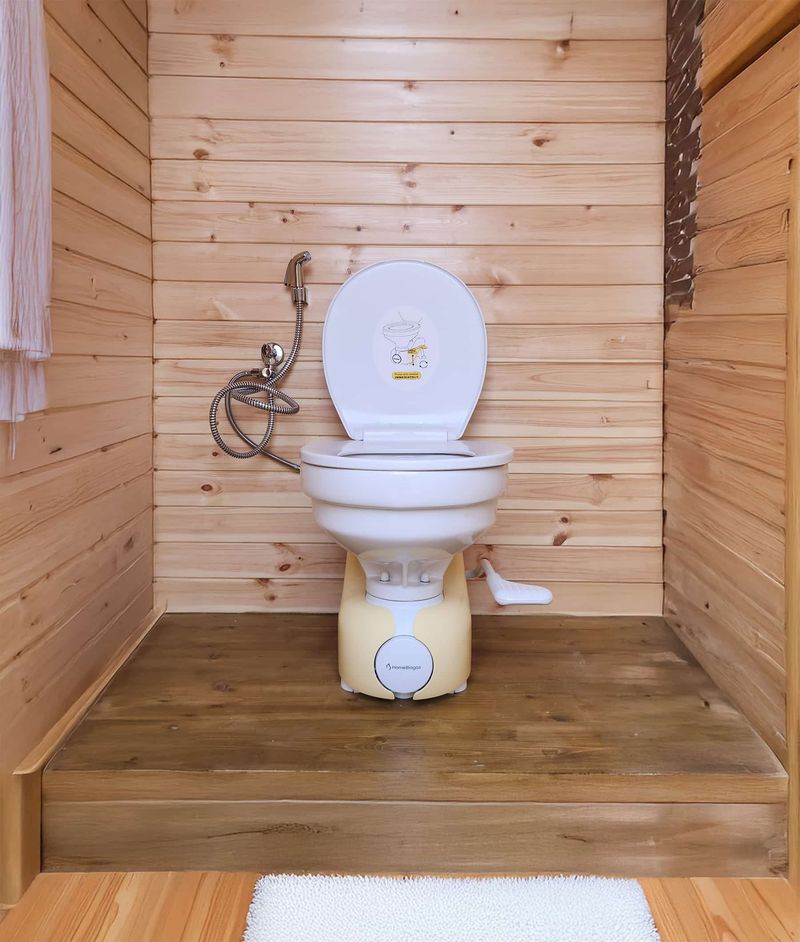
Outdoor composting toilets require special permits from health departments to ensure proper waste handling, adequate ventilation, and appropriate maintenance schedules. These permits typically specify construction requirements, setbacks from water sources, and annual inspection protocols.
Unpermitted waste management systems can create serious public health hazards and water contamination risks. Violations can result in immediate removal orders, property quarantine until proper remediation, and significant fines under public health codes.
For outdoor bathroom needs, portable camping toilets offer a legal alternative for occasional use. These self-contained units use chemical treatments to control odors and can be properly emptied at approved dump stations, avoiding the complications of permanent installations while still providing convenience for backyard activities.
18. Food-Producing Aquaponics Systems
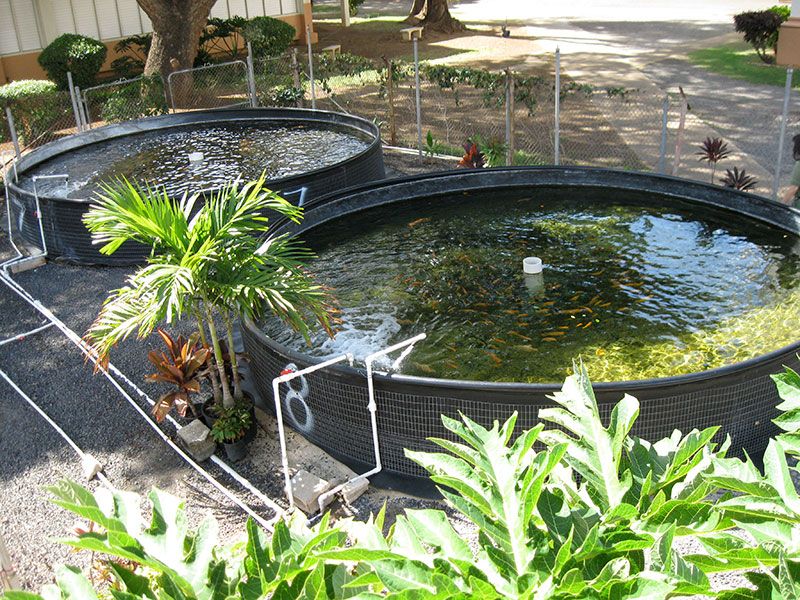
Large aquaponics systems combining fish tanks with hydroponic growing beds often require permits to address water management, electrical safety, and sometimes food production regulations.
Unpermitted systems can create problems with excessive water usage, improper drainage affecting neighboring properties, or unintended release of non-native fish species. Electrical components near water create safety hazards if not properly installed and protected.
Start with a small, countertop aquaponics system to learn the basics before scaling up. Once familiar with maintenance requirements, you can decide whether pursuing permits for a larger system makes sense for your situation.






